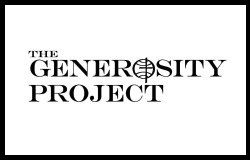The Generosity Project is a collaborative effort between ABCUSA, regions, and local congregations. The Generosity Project aims to help pastors re-frame the conversation around stewardship and generosity in their congregations. Bi-monthly blogs help support new growth and understanding as we deepen our ministry and discipleship. The reflection below was provided by Rev. Stacy Emerson.
“He has told you, O mortal, what is good;
and what does the Lord require of you
but to do justice, and to love kindness,
and to walk humbly with your God?”
~Micah 6:8
These words are some of the most familiar in prophetic scripture, and many of us deep down appreciate these words because in the simplest of language, they tell us clearly what God wants from us: Do justice. Love mercy. And walk humbly with your God. Finally, a spiritual to-do list we can understand. It’s concise and short enough to remember. We can do this, we think.
But we often read these words out of the context of the rest of Micah where clearly God is upset with the people. Before we handle this text, and think we get it, we must prepare ourselves to be handled by it, to let it crack us open and expose our vulnerability. The prevailing image in the prophet Micah is that of a court, where all of creation is called forth to witness and to testify to humanity’s efforts. Stop for a minute and think about that. All of creation called forth to testify to our efforts. The black rhino and the mountain gorilla who are about to be made extinct. The mighty ocean choked by plastic. The child in a forgotten village who doesn’t have enough food to thrive. The mother grieving the murder of her child at the hands of a gunman who invaded their elementary school. All things we see every day. All things in our power to change. Clearly, we fall short. In the opening verses in Micah 6, it says that God has “considered the state of things”…is that what we really want God doing?…and it says that the “Lord has a controversy with his people.” Well. God cries out, “O my people, what have I done to you? In what way have I wearied you? Answer me!”
“He has told you what is good, and what does the Lord require of you but to do justice, and to love mercy, and to walk humbly with your God?” Do Justice. What does that mean? I think we would rather Micah’s sentence put it this way: Do mercy, love justice, and walk humbly with your God. Because mercy we understand. Responding to the needs of the poor, the homeless, the hungry—we get soup kitchens and homeless shelters and clothing drives. And the church beautifully shows its love and mercy in all those things. To love justice is also what we like to do. We say racism is wrong. We grimace at unethical business practices. We talk about the economic disparity deepening every day in our country and around the world. We tsk at the latest mass shooting while we say there is nothing we can do. We can see what’s wrong. We love justice and know it should happen somehow. But justice isn’t just about caring about what’s right. Justice is something revolutionary. Justice confronts and works to dismantle the systems and policies that create homelessness and poverty and racism and hate and unbridled violence in the first place. Love mercy, but do justice. What’s the difference?
Mercy is about giving a hungry person some bread; justice is about changing the system so that no one has too much bread while some have none.
Mercy is about caring for victims of war; justice is about peacemaking and eliminating the conditions that lead to war.
Mercy feels bad when people are discriminated against; justice dismantles the systems, attitudes, perceptions, and institutions that make discrimination OK.
Generosity is at the heart of doing justice, loving mercy, and walking humbly with God. The thing is, we who profess the call to be channels of God’s love and grace and mercy through our generosity, we who believe in God’s love for all people, we must make that reality happen. God requires it, Micah says. God requires this of us—do justice, love mercy, walk humbly. Or put another way, God requires this—that what we say and what we do are one.
Rev. Stacy Emerson is the senior pastor of the First Baptist Church in West Hartford, CT and the former Stewardship Consultant for ABCUSA, where she previously coordinated The Generosity Project which is about helping congregations deepen their understanding of stewardship as a call to generosity as disciples of Jesus; re-framing the stewardship conversation; and cultivating generosity in pastors, lay people, and congregations. For more information about The Generosity Project, visit www.abc-usa.org/generosityproject.

